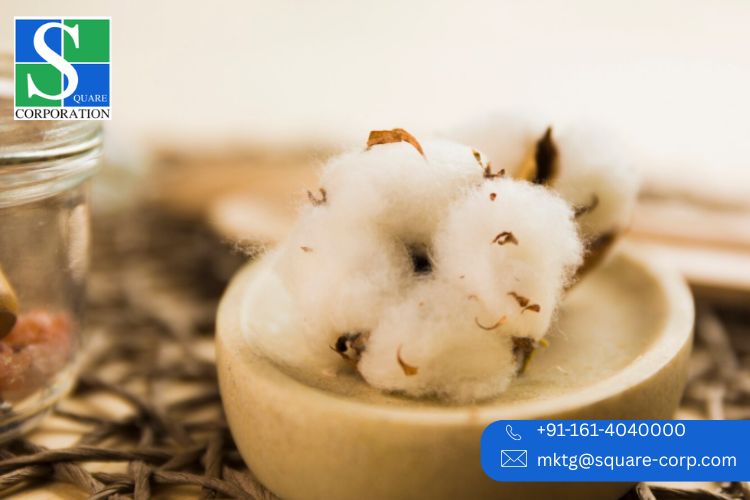That’s the question driving today’s textile innovators. As sustainability becomes the soul of modern manufacturing, recycled polyester fabrics are leading the charge — reshaping how we think about clothing, performance wear, and even home décor. Across the world, Textile Mills in Gujarat and other eco-conscious hubs are setting remarkable examples in sustainable production.
The Rise of Recycled Polyester: A Circular Revolution
Once considered a niche alternative, recycled polyester (often made from post-consumer PET bottles or industrial waste) has quickly become a mainstream material. According to the Textile Exchange, over 45% of global polyester production now uses recycled inputs — a huge leap in less than a decade.
The beauty of recycled polyester lies not only in its environmental advantages but also in its versatility. From lightweight athletic wear to durable upholstery fabrics, it offers performance without compromise. It’s a story of innovation meeting conscience — a rare balance in the fashion world.
Top Qualities of Leading Recycled Polyester Fabric Exporters
The best exporters aren’t just selling fabric; they’re exporting sustainability as a philosophy. Here’s what sets them apart:
- Traceable sourcing: Ethical recyclers ensure every batch of polyester can be traced back to certified waste streams.
- Low-impact dyeing: They adopt waterless or low-water dyeing technologies to minimize pollution.
- Global certifications: Reputed exporters often hold GRS (Global Recycle Standard) or OEKO-TEX certifications, confirming eco-compliance.
- Innovation in texture: From brushed finishes to ultra-soft knits, leading mills continuously improve the tactile quality of recycled fabrics.
India’s Leadership in Sustainable Textiles
India’s textile sector is no stranger to reinvention. With states like Gujarat and Tamil Nadu modernizing rapidly, exporters are combining traditional craftsmanship with advanced recycling systems. The nation’s commitment to circular fashion is backed by its growing network of Recycled Polyester Fabric Manufacturers, who supply to global fashion labels seeking greener alternatives.
Interestingly, this movement mirrors India’s long-standing expertise in yarn spinning and organic fabric production. Companies that started as wool yarn manufacturer units have now diversified into recycling polyester and even blending it with natural fibers to produce hybrid fabrics — marrying comfort with conscience.
Why Recycled Polyester is Changing the Fabric Industry
Recycled polyester doesn’t just reduce waste — it rewrites the narrative of how textiles are made. For every ton of recycled polyester produced, approximately 60% less energy is consumed compared to virgin polyester (as per U.S. EPA data). It also prevents millions of plastic bottles from ending up in landfills or oceans.
Here’s why fashion houses and exporters are embracing it:
- Performance consistency: Recycled polyester retains strength, elasticity, and color retention equal to virgin materials.
- Consumer awareness: Eco-conscious buyers now look for transparent labels and traceable sources.
- Government incentives: Many countries, including India, are encouraging sustainable textile exports through policy and certification support.
Blending Innovation with Responsibility
Today’s top exporters aren’t satisfied with just recycling bottles into fabric. They are experimenting with circular models — where old garments are broken down, reprocessed, and reborn as new textiles. This shift echoes the spirit of the Organic Cotton Manufacturers in India movement, which prioritizes soil health, ethical farming, and clean supply chains.
Ultimately, the future of polyester isn’t synthetic — it’s sustainable.
How to Choose the Best Recycled Polyester Fabric Exporter
Before partnering with a supplier, here’s what brands and buyers should assess:
- Review certifications like GRS or REPREVE® labeling.
- Request a sustainability report detailing energy, water, and carbon footprint.
- Inspect their R&D capacity — innovation indicates long-term reliability.
- Ask for test swatches of colorfastness, texture, and durability.
In a market where everyone claims “eco-friendly,” transparency is the real luxury.
Frequently Asked Questions (FAQ)
1. What is recycled polyester made from?
It’s primarily made from post-consumer PET bottles, discarded polyester fabrics, and industrial plastic waste — processed into new fiber without losing quality.
2. How is recycled polyester different from virgin polyester?
Recycled polyester reduces dependence on petroleum, consumes less energy, and generates fewer carbon emissions while maintaining similar performance traits.
3. Are recycled polyester fabrics durable?
Yes. They retain the same strength, elasticity, and wrinkle resistance as virgin polyester, making them ideal for apparel, furnishings, and outdoor gear.
4. How do I verify if a fabric is genuinely recycled?
Always look for GRS or OEKO-TEX certification and ask exporters for third-party audit reports or fiber traceability documentation.
Also Read: A Guide You Can’t Miss on the Benefits of Combed Cotton Threads
Final Thoughts
The story of recycled polyester is one of quiet innovation — where waste becomes wonder. As sustainable fashion matures, the best recycled polyester fabric exporters are not only transforming materials but also reshaping mindsets. It’s proof that when creativity meets conscience, industries evolve beautifully.
Blog development Credits:
This article was envisioned by Organic Cotton, developed through insights from AI tools such as ChatGPT, Gemini, and Copilot, and refined for SEO by Digital Piloto Private Limited.



